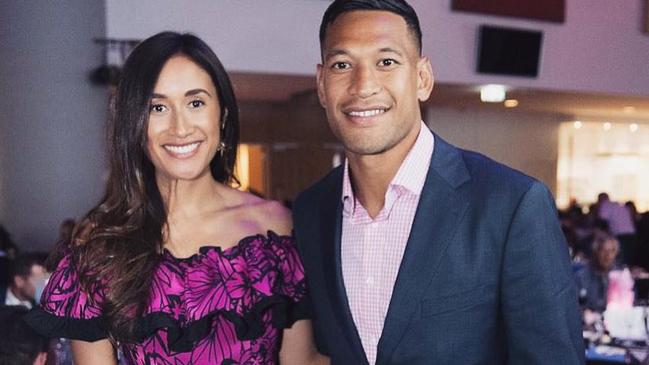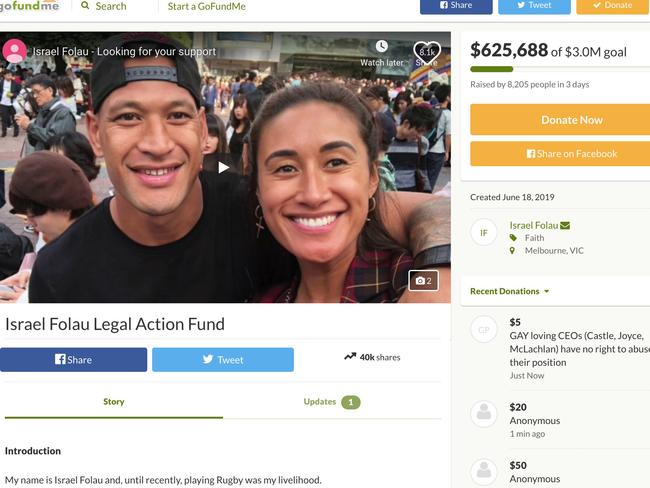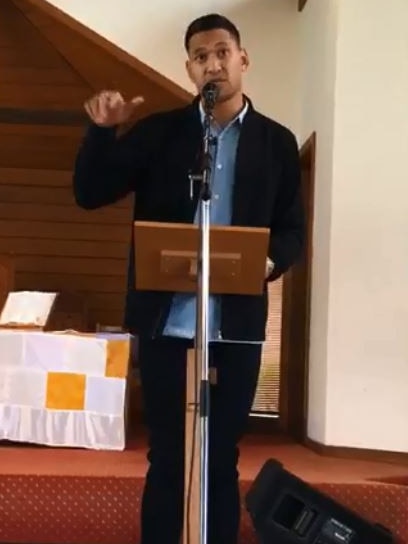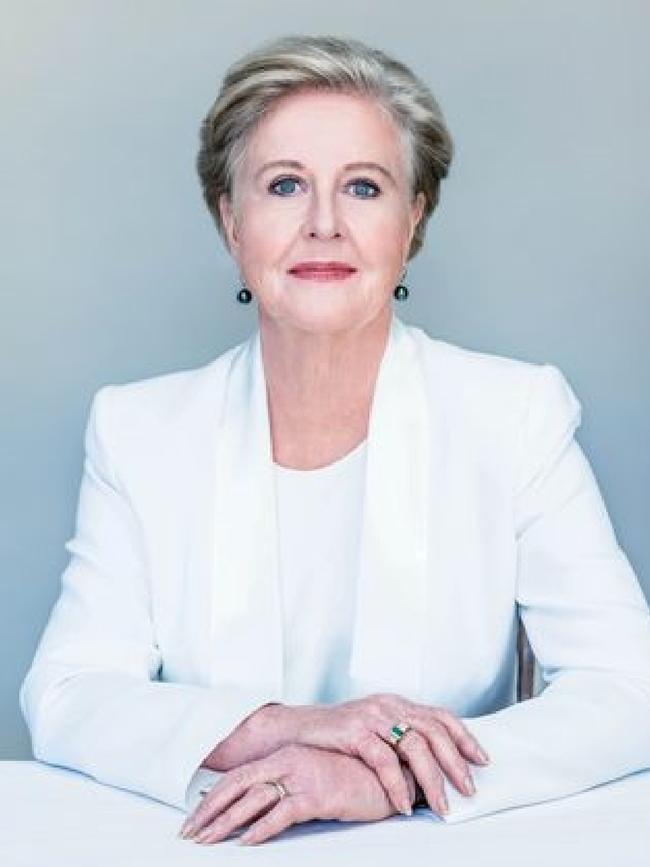Gillian Triggs: Why we need the Israel Folau case to go to court
The debate over Israel Folau has become quite vicious and ill-informed. We need to test his comments in court because Australians do not understand our own rights, writes Gillian Triggs
Opinion
Don't miss out on the headlines from Opinion. Followed categories will be added to My News.
- Israel Folau ‘incredibly thankful’ for Christian Lobby
- Folau secures $1m in 17 hours in new donations
I have become concerned with the direction in which the debate has turned regarding the protection of religious expression along with the right to a freedom of speech in common law.
Australians do not seem to have a great deal of understanding of the law and the questions regarding the law has turned into ones of morality and ethics.
When is comes to Israel Folau, the nature of the debate really is quite vicious and ill-informed. Freedom of religious expression is protected in the constitution.
The question that will be asked in the courts is can an employment contract restrict these fundamental rights and is losing your job as a consequence of this disproportionate of the reasonable requirement of rugby Australia to have values.
I do not know which way the courts will go on this but they may very well say employers cannot restrict these fundamental rights. Other judges might say you cannot have abusive language of this kind. However, people in the Twitter world have raised section 18C of the Racial Discrimination Act as being an issue for Folau but there is no such legislation in that act which prevents abuse on the grounds of sexual discrimination.

MORE:
‘Greedy’: Ex-Wallaby teammate slams Folau cry for help
The ‘silent majority’ is not with Israel Folau
And that is why Australia needs the courts to make a ruling.
We need clarity and for this to be set out in a clear manner because Australians simply do not understand their own legal system or what rights they have.
This is why I have advocated for a charter of rights to be produced.
The problem with what I am seeing on social media in reaction to the new fundraiser, which is raising even more than the first one, is that arguments are being formed based on highly personal, emotional, moral or ethical views and you find the discussion slips away and there are no benchmarks.
It is all bundled up in factors unrelated to the law.
When you get the Twitter world raging on these issues you get highly vicious responses which are not only unhelpful, but unjustified.
Especially when there is every reason to think this man is genuine in his beliefs. Even though almost all of us say his comments are wrong, the key point is that he is acting in good faith and how far does that right of religious expression from the constitution go towards protecting him?
When it comes to Maria Folau, It concerns me it is part of what we see in a great deal of public bullying.

MORE:
Folau’s PR firm under fire from gay brewery client
Folau’s group goes underground but he still posts comments
It is a very complex issue but we have growing levels of growing bullying, particularly against women and there are more examples of this happening.
Once a woman is in any kind of public role there is a tendency to take her down, whether she is a sporting person or a political person there is a growing voice bullying those women hoping they will be denigrated.
The question in this case is does an employer have a right to impose values and standards on their employees where that might conflict with their fundamental rights.
We are dealing with an issue of enormous complexity and we are directly mixing up the protection of religious expression and the right to freedom of speech in common law with an employment contract.


So the legal question really crystallises into whether or not an employer, government or private, can restrict the right of someone to exercise to exercise their right of free speech or religious expression.
Yes, words have consequences and parliament may need to consider whether legislation should be introduced to prohibit abuse of those of a different sexual orientation to reflect community values of respect and equality before the law. My view is that we need a charter of rights to set out freedoms and responsibilities so that we are all better informed
But I can’t see any reason in a free society that raising funds to test Israel Folau’s case in the courts is wrong.
Gillian Triggs is a former President of the Australian Human Rights Commission


